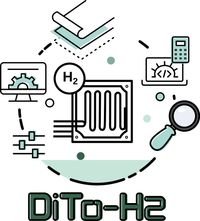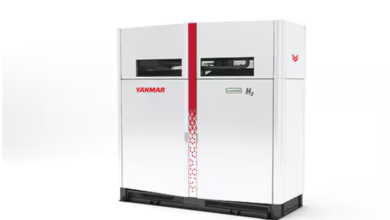Glasgow and Braunschweig collaborate on hydrogen research
The programme aims to facilitate research and practice-based partnerships between the two countries to explore the future use of hydrogen.

The University of Strathclyde is one of three higher education institutions in Scotland to receive funding from the Scottish Government-funded Royal Society of Edinburgh (RSE) Scotland-Germany Hydrogen Research Scheme.
The University of Strathclyde is working in cooperation with Technische Universität Braunschweig to develop a digital toolkit for hydrogen production.
The University of Strathclyde is a strategic partner of TU Braunschweig. The contact came about through the joint commitment of CESAER, a network of more than 50 leading universities of science and technology in Europe. Since 2019, there has been an intensive exchange, especially in the area of research. In concrete terms, both universities are now working together on the hydrogen project “DiTo-H2 “, funded by the Scotland-Germany Hydrogen Research Scheme.
This project aims to develop a modelling framework that maps technological advances at different levels and quantifies how advances at the material level translate into performance improvements at the electrolyser and energy grid level. The framework will facilitate rapid decision-making on the value of integrating new technologies and materials as they become available.
The project is to be led for Strathclyde by Dr Dragos Neagu, a Chancellor’s Fellow in the Department of Chemical and Process Engineering, alongside colleagues at the University’s Advanced Forming Research Centre, Institute for Energy and Environment and Power Networks Demonstration Centre.
Professor Daniel Schröder, head of the Institute of Energy and Systems Process Engineering at TU Braunschweig, said, “An integral part of the project is a workshop in which important players in German and Scottish hydrogen research will network beyond the project consortium, develop future research strategies, and subsequently design further joint project proposals around green hydrogen.”
Professor Angela Ittel, President of TU Braunschweig, said, “Green hydrogen is high on our research agenda. Networking in Europe is only logical to work together with our partner, share knowledge and arrive more quickly at solutions for one of the most pressing goals, the move away from fossil fuels.”
Dr Neagu said, “I am excited to work with an internationally high-level team that combines knowledge from materials, manufacturing, electrical engineering and electrochemistry. I would also like to take this opportunity to thank Scottish Power and the Lower Saxony Ministry of Economic Affairs, Employment, Transport and Digitalisation for their support of the project.”
Professor Sir Jim McDonald, Strathclyde Principal, said, “Together with our partners at the Technical University of Braunschweig and with the support of the Royal Society of Edinburgh, our research will accelerate the implementation of Scotland’s Hydrogen Action Plan and make further progress towards a net zero future.”
